
by Kasia | Sep 8, 2016 | Writing
It’s the first week of Spring here in Australia (or the start of Autumn if you’re on the opposite side of the globe) and I’m excited. The days are getting longer, the temperature warmer, flowers are starting to bloom and there’s just so much more positivity in the air. While living in the sunny state we don’t get a real winter, the temperature sits around 18-24 C during the day and between 8-12 C at night. And yes, it’s usually dry and sunny.
But enough about the weather.
Now is the time to do a spring clean and ensure that you’re on track to finishing the year feeling content with your business, goals, health and life in general.
It’s easy to get overwhelmed with a clean up. There’s just so much to do and it’s difficult to know where to start.

So here are a few tips and tricks to get you on the way to spring cleaning your business and your life.
Your Business
Is your business where you want it to be today?
Have you made progress since the beginning of the year?
Is there anything that you can do differently?
If you could focus on just one thing for the rest of the year, what would it be?
How would this one thing improve your business?
Are you willing to commit to achieving this thing?
What are you going to do today, this week, this month, to get where you want to be at the end of the year?
Your Goals
Have your goals changed or evolved since January 1?
Which ones can be crossed off the list?
Rate the goals in A, B, C. Then focus on the most important ones, the A’s.
Your Life
What do you want to achieve in life?
How do you enjoy spending your free time?
What do you enjoy doing most?
How can you find more time to do more of it?
Your Health
How much exercise have you done in the past month?
How many pieces of fruit and vegetables have you eaten this week?
Do you have a sedentary job?
How’s your posture?
Are you getting enough sleep/taking enough breaks?
Things that you can do to improve the flow of positive energy into your life and business.

Clean up your writing
– Create folders for ideas/pitches/templates/books/blogs/etc
– Sign up for Scrivener it’s the best thing you can do for your writing!
– Want to improve? Change direction? Sign up for a writing course.
– Put all your salvageable ideas into a folder, throw out anything obsolete
– Create a folder for your ‘Works in Progress’, ‘Drafts’, ‘Templates’ etc
Clean up your computer
– Organise your files
– Delete obsolete files
– Back up your laptop (you should be doing this regularly. You can even email any important files to yourself for safe keeping and easy access anywhere, anytime. I often do this to back up my works in progress).
– Transfer photographs to an external hard drive (your laptop/computer will work more efficiently)
Clean up your wardrobe
– Take out all your clothes from your wardrobe and drawers (don’t be shocked by the massive pile)
– Select the items you wear all the time and put them to the side
– Sort what remains in piles of keep, donate, throw.
– Get rid of anything that doesn’t fit well, is worn out or makes you feel like shit
– Do the same with your shoes
– Segregate what is left by colour or season
Clean up your finances
– How’s your budget looking?
– Go through your statements and assess your spending vs income
– Create a savings plan, even if it’s only 1% (it’s still better than 0%!)
– Ask for a pay rise (especially if it’s been a while since your last one)
– Find ways that you can improve your earning potential/qualifications
– Photocopy your receipts for tax time
– Create a financial folder will all your accounts, insurances, investments in one place
Clean up your health
– Keep a diary of everything you eat and how much you exercise for seven days
– Make a healthier choice with just one meal a day, for example: start eating breakfast or swap the mid-morning biscuits for a piece of fruit and some greek yoghurt.
– Get outside more, aim to walk at lunchtime a few times per week
– Take every opportunity to move during the day. Your body was made to move and not be stuck in the same position all day, so sit, stand, walk, stretch, and you will feel better each and every day.
– Stock up the fridge with your favourite fruit and vegetables and make sure to eat them every day.
You’ll feel so much better with your business and yourself after a solid spring clean. It’s a lot to do so you can spread the tasks out over a week so not to rush them.
Do you do a spring clean of your life/work/finances/health? Feel free to share your tips and tricks in the comments!

by Kasia | Sep 8, 2016 | Writing
The words on the page should be dancing to your tune when instead they’re a jumbled mess not telling the story that you were aiming for. Frustrated? Me too. This is often a sign that something is wrong with your story.
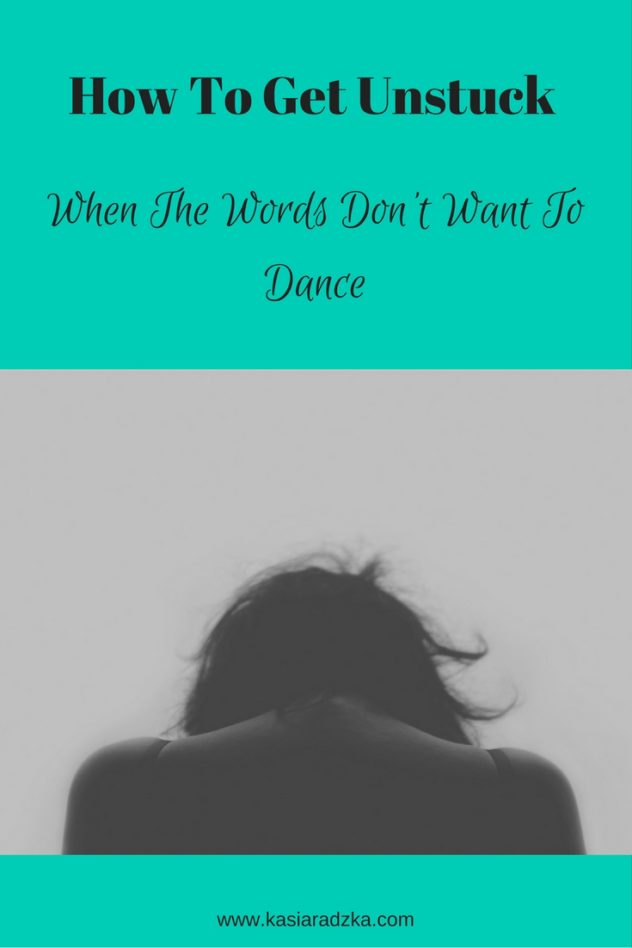
Sometimes you have to take a step back and reassess. Admit the stuff up. Fix it. Move on.
I created a tight production and publishing schedule for 2016/17 but didn’t account for the obstacles that were inevitable to arise.
* Life
When you have children, a job, hobbies, and trying to do ten things at a time, the day to day realities are going to get the better of you
* Burn out
I hate it. I’m working everyday on eliminating it through regular breaks and doing things that re-energise me like going for a run, weight training, drinking wine with friends, reading a good book, but it doesn’t always work.
* Too high expectations
Yes, there is such a thing as expecting too much. I expect more and more of myself each and every day and nothing ever seems good enough. I’m not sure why that is. I’ve had lows in my life that it’s difficult for me to recognise that that was actually me and now I feel that I need to work extra hard to prove to myself that reality is different.
* Writer’s block
This is more of a lame excuse than anything else. I don’t really believe in writer’s block. If you are working on multiple projects, have outlines and are passionate about what you’re doing, you are not going to suffer from writer’s block.
I’ve been working on book four of my Lexi Ryder Crime Thriller series. It was supposed to be published in June, then July, then August. It didn’t happen. All the above mentioned have arisen and paralysed my productivity. It sucks. It’s frustrating. It’s driving me bonkers.
But I’ve finally figured out the problem.
The story was going in multiple directions and not what I expected. I was surfing Pinterest the other day (don’t you just love it?) and came up with a solution.
Go figure. Pinterest can actually lead to productivity. Would have never believed it had somebody told me. Pinterest is what keeps me up at night. Not sure whether that’s so so sad or just a part of being a creative. Whatever works, right?
So what do you do when you’re stuck on a piece of fiction or non-fiction?
Relax.
As hard as it may seem relaxing is the best thing you can do. If you stress over it you risk analysis-paralysis taking over and you’ll end up getting nothing done. Just take a breather and step away.
Work on something else.
Sometimes the brain is just tired of the same activity. By switching tasks like moving away from working on a scene in your novel to writing a blog post (like I’m doing right now).
Go for a run (or do any type of exercise).
Sweating it out is useful in that it burns excess energy and can give you clarity once you’re done. Exercise works wonders for my productivity. Everything starts falling into place as long as I include at least thirty minutes of exercise most days of the week.
Read a good book.
Take a break, make yourself a cup of tea (or coffee, or glass of wine), put your feet up and enjoy an hour reading a book.
Look back.
Read what you’ve written. What’s working what isn’t? Read it out loud so you can hear how the words sound. What are you trying to convey?
Add a surprise.
If you’re writing fiction throw in a barking dog, or a gun going off, or an old flame from the past. A bit of extra tension might be what your story needs.
Write the end.
Middles are hard. Don’t worry about it. Work on a different scene or chapter. Nobody said your book or articles had to be drafted in a coherent matter. That’s what the editing stage is for.
What do you do when you get stuck on a piece of writing?

by Kasia | Sep 4, 2016 | Writing
If you listen to Joanna Penn’s The Creative Penn podcast (highly recommended!) then in the last one (29/8/16) you would have heard her talking about measuring her writing life/career in Olympic periods which is an interesting way to look at things. It’s well known that we overestimate what can be achieved in one year but underestimate what we can do in four.
Our Olympians manage incredible feats by committing themselves to hard work and no excuses. They did an awesome job once again this. I thought, why not take on the challenge and think about my own life/writing career since the 2008 Beijing Games.
Much has changed. Much has stayed the same.
Either way, it has all come down to my actions, my decisions, my choices.
So here goes.
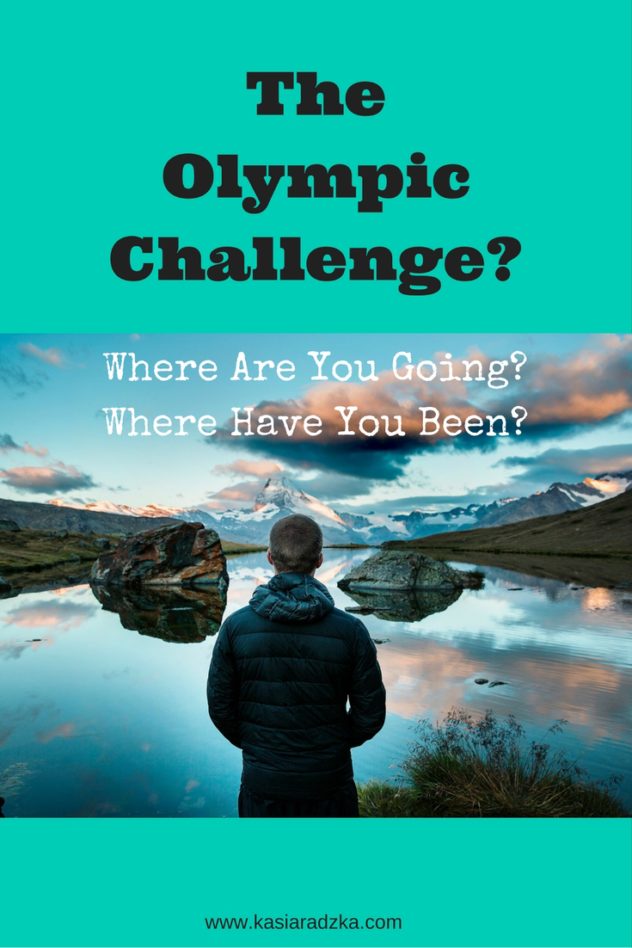
Beijing 2008
I was in Warsaw, Poland teaching English as a foreign language, writing for content mills (Helium), dabbling in freelance writing, trying to finish the upteenth novel that would probably be trashed, and not doing enough travelling. I’m not sure how I feel about this time in my life but if I were to go back I would certainly do things differently. We live and learn. Had anyone told me a year earlier that I’d be living in Poland (I was born there but moved to Australia when I was 8), I would have laughed out loud and told them they were crazy. Well, life happens. Somehow I ended up going on holiday and stayed for 3.5 years. The upside: I got to meet more of my extended family and spend time with my grandparents.
One constant was that I wanted to write for a living. The dream of being an author was still alive. I just wasn’t aware of the Amazon’s abilities. I had heard of Matthew Reilly’s success at self-publishing (he’s now a multimillion traditional published author), but I didn’t really want to hand-sell 10,000 copies and hustle from bookshop to bookshop begging them to stock my books in hopes of a traditional publisher noticing me.
I probably should have done more research towards the self-publishing route. Hmm.
Let’s teleport to the next Games…
London 2012
Back in Australia. Yay. This is home. Ok, I feel at home everywhere but Australia is my base. Comfort and safety. No matter where I end up, this is where I always want to return.
Writing wise I was in a bit of a jam. There were several blogs I started and stopped. My confidence had plummeted for various reasons. I wasn’t sure what I was doing or what I wanted. I was working lots, commuting lots and training for marathons and triathlons. I was still writing, there was a book I was working on that I kept telling myself that it would be published, but I wasn’t taking myself seriously enough.
Fast forward another four years…
Rio, 2016
I have two novellas and a novel on the market. I finally self-published in 2015 and have set hefty goals for the years to come.
I’m an author.
Finally. After twenty years of dreaming about it, it’s happened. I’m still working in the financial services industry and I enjoy it for the most part. I actually worry that if I don’t have the commute I won’t have time to write! But I’d love to write full time eventually.
On a more personal note, I’m now a mum to a toddler who takes up a large chunk of my free time. He is awesome. But I’m bias because he’s mine! Maybe that’s why the commute is so productive!
Look into the future…
Tokyo, 2020
It’s easy to say, hey this is where I want to be at such time. The harder part is actually making it happen. I’m no stranger to setting hefty goals and then being disappointed I haven’t achieved them. But then down the track I see that in fact some have been ticked off in ways I hadn’t expected.
Where do I want to be in my writing career in 2020? That’s a good question. Firstly, I want to be a full-time author-entrepreneur. That means earning $120,000+ per year (after tax) from my writing.
In four years I’d like to have at least twenty books on the market (that’s 4-5 books per year) including both fiction and non-fiction, novels, novellas and shorter e-books. I would also like for my blogs to be popular and earning a decent income while helping others achieve their entrepreneurial dreams.
Why do I want this? My son will be in school and I want to be there for pick ups and drop off and sports carnivals and all that jazz.
One day in the near future (3 – 5 years), I’d love to hire a car and drive across Europe over a six month period with my husband and son. This would be an epic adventure and being an authorpreneur can allow me to do just that as it would mean I could still work on the road and income would be trickling (hopefully flowing!) in from book sales.
I think to achieve your dreams the why has to be stronger than the what. If you really want something, you’re going to work your booty off and get it done regardless of what life throws at you.
Thanks Joanna Penn for suggesting this challenge it really allowed me to reflect over the last eight years and look at the bigger picture towards the future. Cheers to writing (and selling) more books!
How has your life evolved over the past few Olympic time periods? Where do you see yourself when the next Olympics roll around?

by Kasia | Sep 3, 2016 | Writing
Why am I sharing my income reports with you? Well, I like the transparency of the blogosphere and it’s motivating for both of us. You can see that it’s not all easy or breezy. You actually need to put in the hard work to get somewhere.
My aim eventually is to make a full time living from my writing business. That includes selling books, freelance writing, affiliate marketing, helping other writers/entrepreneurs through coaching/courses and more.
I want multiple streams of income. I don’t want to rely on just one and be screwed should something fall apart. I want to be comfortable. I want options.
I don’t like the fact that someone else decides how much I can earn. Or how much I’m worth. Working for myself means that my income possibilities are endless.
As are yours.
My question to you is: what are you going to do about it today?
In August 2016, I made $234 from my writing business. Not a fortune but enough to suggest that, yes, maybe I can do this. And I want more.

At the beginning of the month, I decided that I was going to send out 30 pitches in August. I only sent out 6. But out of those six, I received three responses and three assignments. Win!
Check out Gina’s course, 30 Days Or Less To Freelance Writing Success, if you’re interested in becoming a freelance writer. It’s a great course that will challenge you and help you start pitching and getting work in less than 30 days!
Related: So, You Want To Be A Freelance Writer?
The Metrics
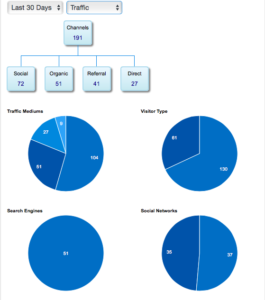
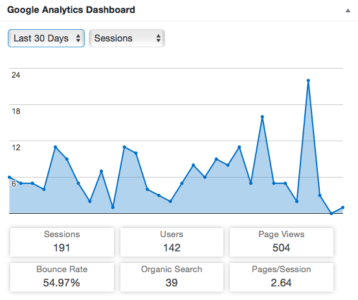
Posts: 8
Page Views: 504
Visitors: 31.9% returning, 68.1% new
Social Media Sources: Twitter, Facebook
Pitches: 6
Responses: 3
Books sold: 1
Books given away: 0
Income:
Freelance writing: $222.88
Books: $11.12 (this is money that has come into my account from previous months sales. Amazon pays 60 days after sale)
Affiliates: $0
Adsense: $0
Total: $234.00
Expenses:
$400.05 (This includes book editing, virtual assistant, PicMonkey annual subscription and Bluehost payment for the year).
My Biggest Blogging Mistake:
Doing the same thing and expecting a different result. I decided to make a change and start putting things into practice instead of just wishing things would happen. I’ve been blogging for fun for over eight years now. It’s time to start treating it like a business.
Related posts: How To Start An Author Blog & Blogging Mistakes Even The Experts Make
September Marketing Tactics
1 – Apply for writing jobs and send out pitches (aiming 30)
2 – Create a FREE ebook for subscribers
3 – Put Lethal Series on iTunes, Nook, Kobo
4 – Make Lethal Instincts permanently free on all platforms
5 – Create an account for automatic Pinterest and Twitter promotion
6 – Join blogging networks
7 – Participate in 2 Facebook groups by commenting most days of the week
September Objectives
1 – Get at least 3 pieces published externally
2 – Enjoy a trip to Hawaii
3 – Draft the first book in a new project
4 – Publish my first non-fiction book (free for anyone who signs up for the email newsletter)
5 – Publish Lethal Attraction Book 4 in the Lexi Ryder Crime Thriller Series
6 – Publish 15 posts on Writerly Pursuits
7 – Double my average monthly page views
8 – Double my income (& halve expenses)
9 – Read two motivational books
10 – Delegate some work to my VA (you need to spend money to make money)
11 – Sign up with an ad network
12 – Improve SEO on articles
How happy are you with your performance in August? What have you planned for September?
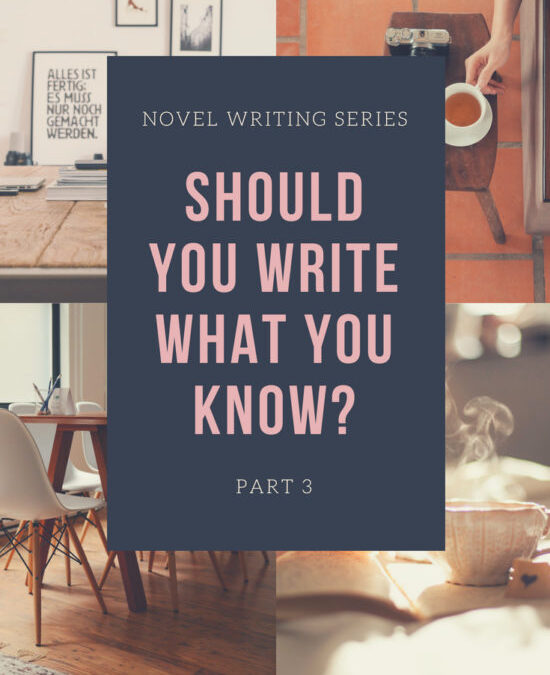
by Kasia | Aug 22, 2016 | Writing
If writers stuck to writing what they knew best we probably wouldn’t have the crazy-arsed horror, sci-fi, fantasy, erotica, crime, or romance books on the market that we see. I don’t think JK Rowling went to wizard school and played Quidditch. Nor do I believe EL James has a naughty room and a billionaire lover.
Then again, I could be wrong.
Regardless, I’m sure you get my point. Writers don’t just write from experience, they also write based on their interests and curiosities. So don’t fret if you haven’t lived an adventure, you can still write a book.
It’s called research and writers do it well. The right amount of research will bring authenticity to your work.
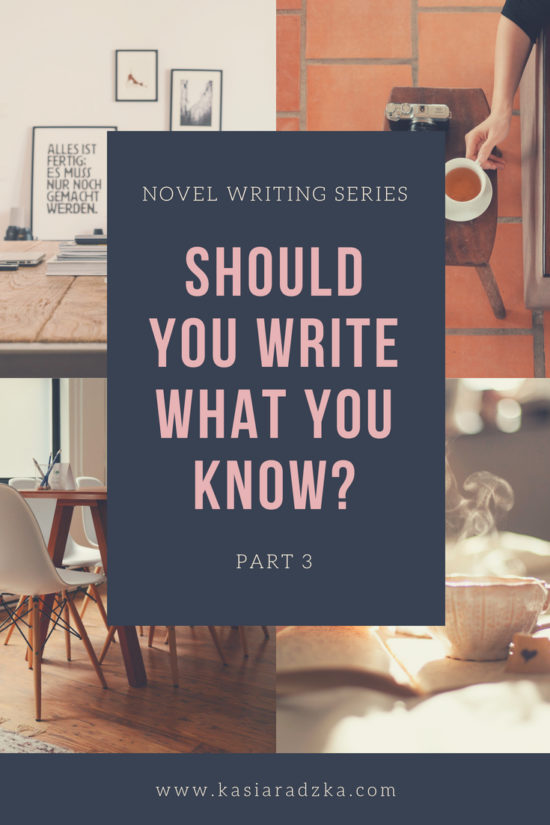
Write what you want to know.
What are the topics that peak your interests? What do you love to read about? If you could go back to university, what would you study? Where would you travel to? What would you believe? What’s on your bucket list?
It’s never been easier to find the information you need, to write the stories you want to. With the click of a keyboard and you can discover new places, people and situations.
Research is a vital part of being a writer. And it’s never been easier than right now.
-
Read reference books and biographies
-
Talk to real people
-
Watch documentaries
-
Study maps
-
Read diaries and journals
You can research almost anything on the internet. No, actually, probably everything if you know what you’re looking for. That’s scary and empowering at the same time. Check out some of these when you’re researching your story.
-
Google Maps
-
Satellite images for more accuracy on setting
-
Tourist centres in most cities
-
Flickr Pinterest
We live in the information age. Information is accessible with the click of a finger. This is good and bad. Information can be abused. As a writer don’t want to do that. You want to take the information and turn it into something great.
If you’re writing a historical novel you can look for information and pictures that will help you create the world you want more authentically.
-
Find diaries of people who lived in the era that you are writing in
-
Run a Wikipedia check on the brief history
-
Check out your libraries online catalogue for books and ebooks
-
Contact HARO (Help a Reporter Out) for experts in the field
If you’re writing a police procedural and your character is a forensic pathologist you can search for articles, pictures of crime scenes, interviews with police, private investigators and the like and create a realistic story that experts won’t be able to poke fingers at.
-
The FBI/CIA/AFP etc all have websites you can use
-
Contact the PR of these organisations and see if someone is willing to speak to you
-
Get in touch with a local detective and see if they are willing to chat
-
Grab books for writers that deal with these topics
-
Talk to a PI and get them to tell you about their processes
You’re writing fiction, people are aware it’s made up. But people are also funny, and mean and brutal. If you make a factual error in a book someone will let you know and it’s not always going to be in a polite way. Make the effort to get the facts and use them correctly. There are a lot of tools available so you have no excuses!
The best one is chatting with people who are doing or have done what you’re writing about. Want to be more authentic? Consider your main character, even your secondary characters. Who are they? What do they do for a living?
Doctor? Great talk to your local GP about a typical day, their worries, and triumphs.
Mansion cleaner? They’re sure to have stories to tell about their clients – anonymously of course. Find some and get them to talk about their experiences.
Clown? Visit a circus, observe, take notes, chat with people.
Write what you are interested in and the information you need will come your way through research. You might be writing fiction but you want it to be realistic unless you’re writing sci-fi and fantasy which have their own set of rules to follow.
In the end, you should only write the story you want to tell.
ACTION STEPS
Where do you want your story to be set?
Start collecting information. Do a Google search and see what you can find. Save the information and any images into your research folder. Use Scrivener? There’s a function where you can keep all your research in one spot. It’s useful for both fiction and non-fiction writers.
How does your character look like?
A useful exercise is to grab a picture and describe it. Don’t tell me what’s on it. Show me so that I can see what you are seeing without actually having viewed the image. Your words as a writer need to paint a picture and it’s easier to do when you have something to look at.
What does your character do?
Research your character’s occupation. What information can you find on it? Wikipedia can give you some general information. Maybe you can find personal anecdotes to use or a diary of a day in the life.
Do you write what you know? How do you research what you don’t know?












